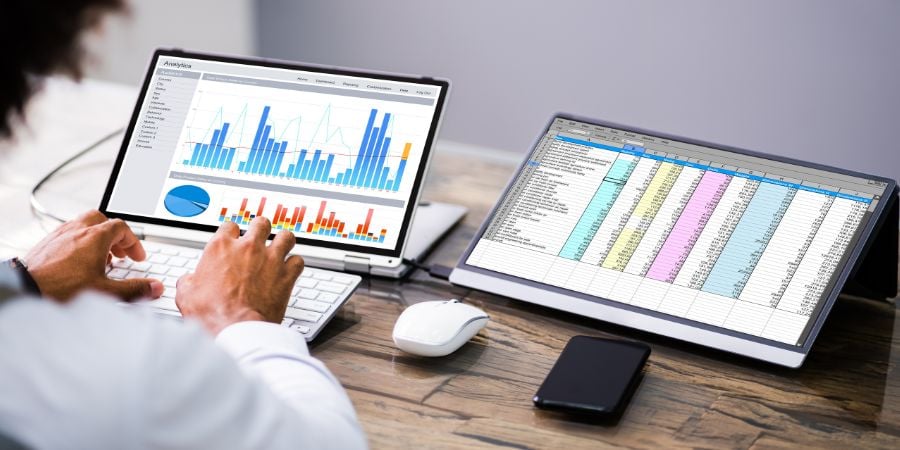Retail Energy Secrets: How to Win Every Contract Negotiation
Every contract negotiation is an opportunity. It's where rates, terms, and relationships converge, setting the stage for success or an uphill struggle. Winning here doesn't just boost your current bottom line; it crafts the trajectory for future ventures. Dive in as we unlock the "secret" strategies that empower suppliers to turn every negotiation into a triumph, securing lucrative deals and driving unparalleled growth in retail energy.
Unlocking Business Potential: Smart Energy Strategies
Strong business leaders know the devil is in the details, especially when steering their companies toward new horizons. From relocating headquarters to launching fresh outlets, no stone goes unturned in strategy formulation. Yet, when it comes to energy contracts, a surprising number tread with unwarranted faith, accepting proposed terms without a word. This oversight can cost more than just dollars — it can mean missing out on valuable competitive edges.
Key Strategy Development: The Art of Preparing for Energy Contract Negotiations
Navigating the energy market's complexities requires more than a cursory understanding of your current needs. It's a strategic chess game where every move is made with foresight, precision, and an acute awareness of the shifting dynamics of supply and demand. Within this competitive arena, the ability to anticipate and strategically align your energy requirements with broader operational goals is not just beneficial — it's imperative. Here's how to deepen your preparation and develop key strategies for successful negotiations.
In-depth Energy Consumption Analysis
Start by dissecting your company's historical energy consumption. This analysis isn't merely about acknowledging how much energy you use; it's about understanding the 'why' behind the usage. Identify trends, seasonal fluctuations, and anomalies. When did the consumption peak, and what operational activities triggered it?
Forecast your future needs by integrating business growth projections, potential facility expansions, or operational scaling. How would these changes impact your energy consumption? This foresight positions you to negotiate contracts that are scalable and adaptable, ensuring you're not cornered into agreements that stifle your growth or burden you with unnecessary costs.
Operational Alignment and Energy Efficiency Goals
Align energy strategies with your business operations. Are there upcoming initiatives that could alter your energy usage, such as the adoption of energy-efficient machinery, shifts towards remote work models, or sustainability goals that favor green energy sources?
Consider your company's public image and corporate social responsibility (CSR) commitments. Opting for renewable energy contracts or negotiating terms that reflect your dedication to sustainability can enhance your brand's reputation, a factor that can be leveraged during negotiations.
Risk Assessment and Management
Evaluate the potential risks associated with energy supply contracts. These could range from fluctuating market prices, regulatory changes, supply disruptions, or even climatic impacts on energy production.
Develop a risk management strategy. Determine what level of risk is acceptable for your business and how to mitigate unacceptable risks. This preparation is crucial for negotiations, ensuring you're not entering agreements that leave you exposed to unpredictable market forces or locked into unfavorable fixed rates.

Engaging Energy Brokers: The Game Changers:
Acknowledge the expertise gap. Energy brokers don't just fill this gap; they bridge you to a world of insider market knowledge, supplier nuances, and negotiation tactics that are often beyond the reach of businesses dealing with myriad other concerns.
These experts take the deluge of data from your consumption analysis, operational metrics, and risk assessments and distill it into a potent strategy. They’re not just advisors; they are your negotiation emissaries. They understand the supplier's language, motivations, and pressure points, ensuring you don't just get a fair deal, but the best deal.
Energy brokers also bring a network of supplier relationships to the table, providing more negotiation leverage. This network is a reservoir of market intelligence, offering comparative insights that empower you to make informed decisions.
By embracing these strategic development steps, you're not just walking into a negotiation; you're commanding it. You're equipped with a holistic understanding of your energy blueprint, clear operational alignment, risk awareness, and expert-backed negotiation strategies. This comprehensive approach ensures that you're not reacting to the market — you're making it respond to you.
Energy Brokers: Your Negotiation Powerhouse
Procuring energy isn't just about securing supply; it's about forging advantageous agreements to win more deals. Energy brokers excel here, transforming your business needs into negotiation capital by:
- Leveraging Supplier Relationships: Their daily interactions with suppliers provide unique insights, from flexible terms to preferred clients, informing a tactical approach to contract discussions.
- Customizing Procurement Strategies: Brokers don’t generalize; they personalize, tailoring strategies to your consumption profile and business ethos, ensuring contracts resonate with your operational rhythm.
- Market Expansion: Forget about the confusing paperwork, legal fees, and added expenses required to sell in a new energy market. Brokers can help you break into new markets with their expertise and push your business to new levels.
Structuring Your Energy Contract Negotiation
Energy contracts demand a meticulous approach. Enter negotiations armed with clarity on your objectives, market acumen, and a keen sense of the contract spectrum. Here's how you take command:
- Define Your Goals: Whether it's slashing costs, locking in fixed rates, or buffering against market volatility, know your targets. Recognize your BATNA — your fallback if negotiations hit a wall.
- Decode the Market: You're not just negotiating rates but navigating market currents. Grasp the nuances of supply chains, pricing trends, and regulatory impacts. Knowledge is your negotiation currency.
- Select Your Contract Model: Fixed-rate, index price, or a hybrid — each contract type comes with its calculus of cost, risk, and flexibility. Align your choice with your risk appetite and financial strategies.
- Engage in the Art of Negotiation: This is your performance stage. Apply the insights, data, and strategies you've amassed to steer discussions to your advantage.
Embracing Technological Empowerment In Retail Energy
In an age where digital prowess defines business outcomes, energy suppliers are embracing innovative software solutions. Forget the traditional chaos of spreadsheets, manual error-prone contracts, and elusive profit margins. Modern energy software platforms provide a consolidated suite for managing quotes, contracts, and customer journeys seamlessly. Automating the negotiation process is essential for winning more details and outpacing the competition. An investment in energy software can help make this possible.
Invest in technology that not only simplifies contract generation but also offers insights into market trends, helping you stay ahead in negotiations and sealing those paramount deals.
Sealing the Deal: Revolutionize Your Energy Contract Negotiations
Mastering contract negotiations is no longer an art — it's a science, blending analytical depth with strategic foresight. As an energy supplier, your path to consistent negotiation wins lies in your "secret" strategy, leveraging expert broker partnerships, understanding your market, and employing cutting-edge technology. It's about being prepared, being proactive, and commanding the dialogue from a vantage point of knowledge.
Ready to transform how you handle energy commissions and secure favorable terms without constant firefighting? Dive deeper into effective strategies with our comprehensive guide.
Share this
You May Also Like
These Related Stories

Providing Insightful Advice for Broker Commissions with Rich Reporting

Increase Your Energy Business with Data-driven Software Tools



